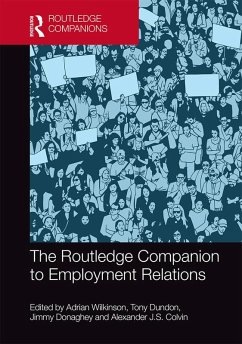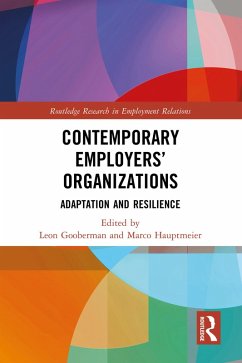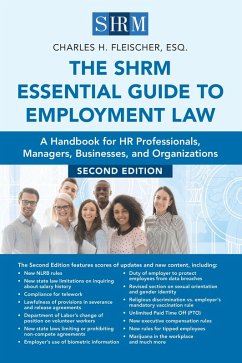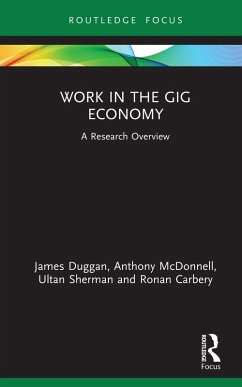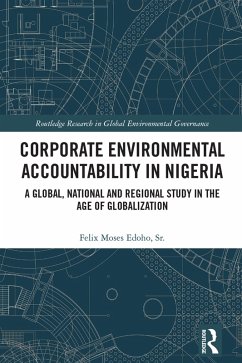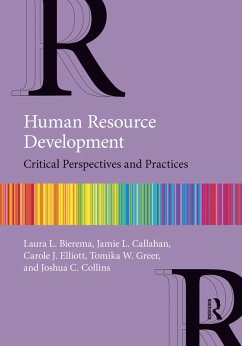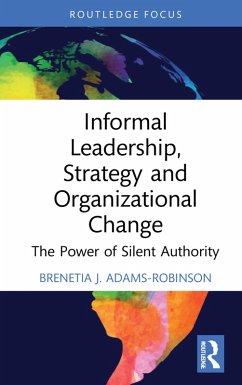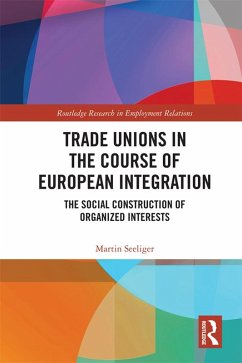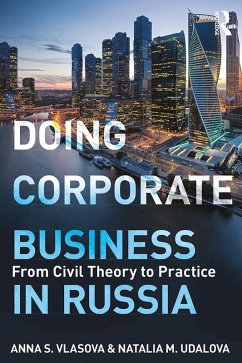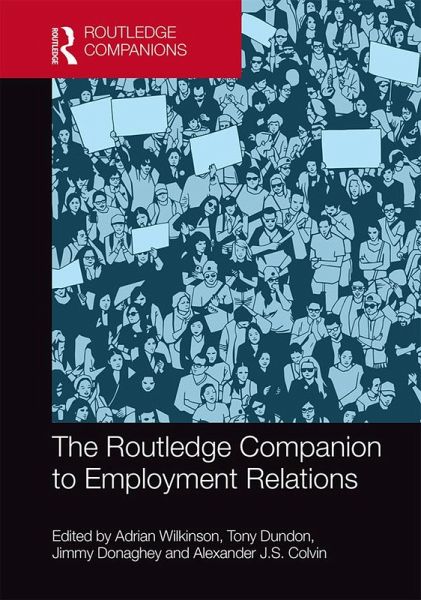
The Routledge Companion to Employment Relations (eBook, ePUB)
Versandkostenfrei!
Sofort per Download lieferbar
43,95 €
inkl. MwSt.
Weitere Ausgaben:

PAYBACK Punkte
22 °P sammeln!
Comprising five thematic sections, this volume provides a critical, international and interdisciplinary exploration of employment relations. It examines the major subjects and emerging areas within the field, including essays on institutional theory, voice, new actors, precarious work and employment. Led by a well-respected team of editors, the contributors examine current knowledge and debates within each topic, offering cutting-edge analysis and reflection.The Routledge Companion to Employment Relations is an extensive reference work that offers students and researchers an introduction to cu...
Comprising five thematic sections, this volume provides a critical, international and interdisciplinary exploration of employment relations. It examines the major subjects and emerging areas within the field, including essays on institutional theory, voice, new actors, precarious work and employment. Led by a well-respected team of editors, the contributors examine current knowledge and debates within each topic, offering cutting-edge analysis and reflection.
The Routledge Companion to Employment Relations is an extensive reference work that offers students and researchers an introduction to current scholarship in the longstanding discipline of employment relations. It will be an essential addition to library collections in business and management, law, economics, sociology and political economy.
The Routledge Companion to Employment Relations is an extensive reference work that offers students and researchers an introduction to current scholarship in the longstanding discipline of employment relations. It will be an essential addition to library collections in business and management, law, economics, sociology and political economy.
Dieser Download kann aus rechtlichen Gründen nur mit Rechnungsadresse in A, B, BG, CY, CZ, D, DK, EW, E, FIN, F, GR, HR, H, IRL, I, LT, L, LR, M, NL, PL, P, R, S, SLO, SK ausgeliefert werden.




